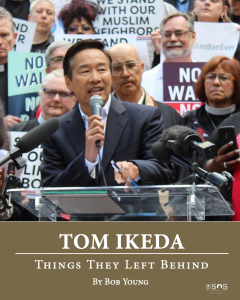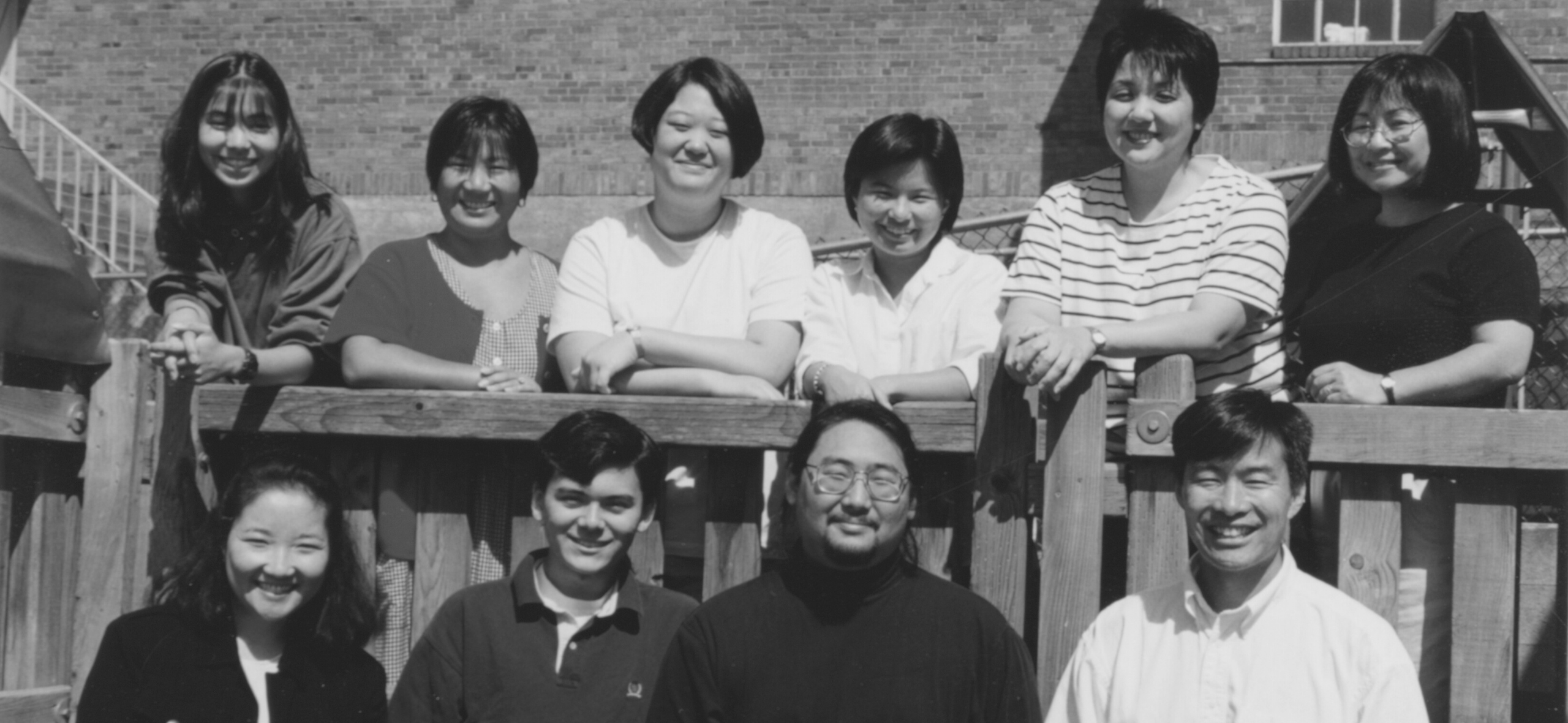
Twenty-five years ago a small group of volunteers met in an old church in Bellevue and asked the question, “What would happen if people knew about the World War II incarceration of Japanese Americans?” They talked about how much better our country would be in its treatment of minority groups if this information was common knowledge. And they talked about the enormity of tackling the national ignorance about this topic and how a powerful new tool — digital technology — just might be a solution.
A founding group of collaborators — Scott Oki, Tom Ikeda, Penny Fukui (Executive Director, Japanese American Chamber of Commerce), and Bobbie Stern (connector of communities) — traveled to Los Angeles for a behind-the-scenes tour of the Shoah Foundation. At that time the organization, founded by Steven Spielberg, was in the process of recording and digitizing over 50,000 interviews with Holocaust survivors. Because of their time at Microsoft, Oki and Ikeda quickly grasped the power of what the Shoah Foundation was doing, and the two of them saw how personal computer technology and the internet could improve upon what they had just seen to create a less expensive process to capture and share stories with the world.
Ikeda volunteered his time to manage a team of volunteers and a small staff to design a digital-born, video oral history project using an inexpensive personal computer platform. This meant training interviewers, researching and buying digital video equipment, developing software tools and applications, and the non-trivial step of convincing Japanese American elders to be interviewed on camera. Oki became the Board President of this start-up non-profit that became Densho — a Japanese word meaning “to pass stories to the next generation” — and helped raise funds, including pledging $1 million over the first five years for the equipment, software development, office rental, and interviewing costs.
Five years later, in the aftermath of the terrorist attacks on September 11, 2001, when fear and hatred towards Muslims spiked upward, Densho was thrust into the role of speaking out and providing powerful evidence of how vulnerable the civil liberties of citizens and residents can be. Since that time, the organization has become increasingly focused on bearing witness to the injustices of our past in order to promote justice and liberty today.
Twenty-five years after its founding, Densho continues its preservation work and is focused on taking a stand against racism and bigotry. It does this as a well respected, award-winning organization considered the gold standard among community groups working to collect, digitize, and share oral histories, historic photographs, and documents.
Awards
- Japanese American National Museum Founders’ Award
- Association of King County Historical Organizations Charles Payton Award for Cultural Advocacy
- City of Seattle Mayor’s Arts Award for Cultural Preservation
- Stetson Kennedy Vox Populi Award of the Oral History Association
- Society of American Archivists Hamer-Kegan Award
- American Library Association Online History Award
- Association of King County Historical Organizations Long Term Project Award
- Washington State Historical Society David Douglas Award
- Humanities Washington Award
- Japanese American Citizens League Biennium Award
- Japanese Community Services of Seattle Award
- Nisei Veterans Committee of Seattle Commanders Award
- NPower Innovation Award
